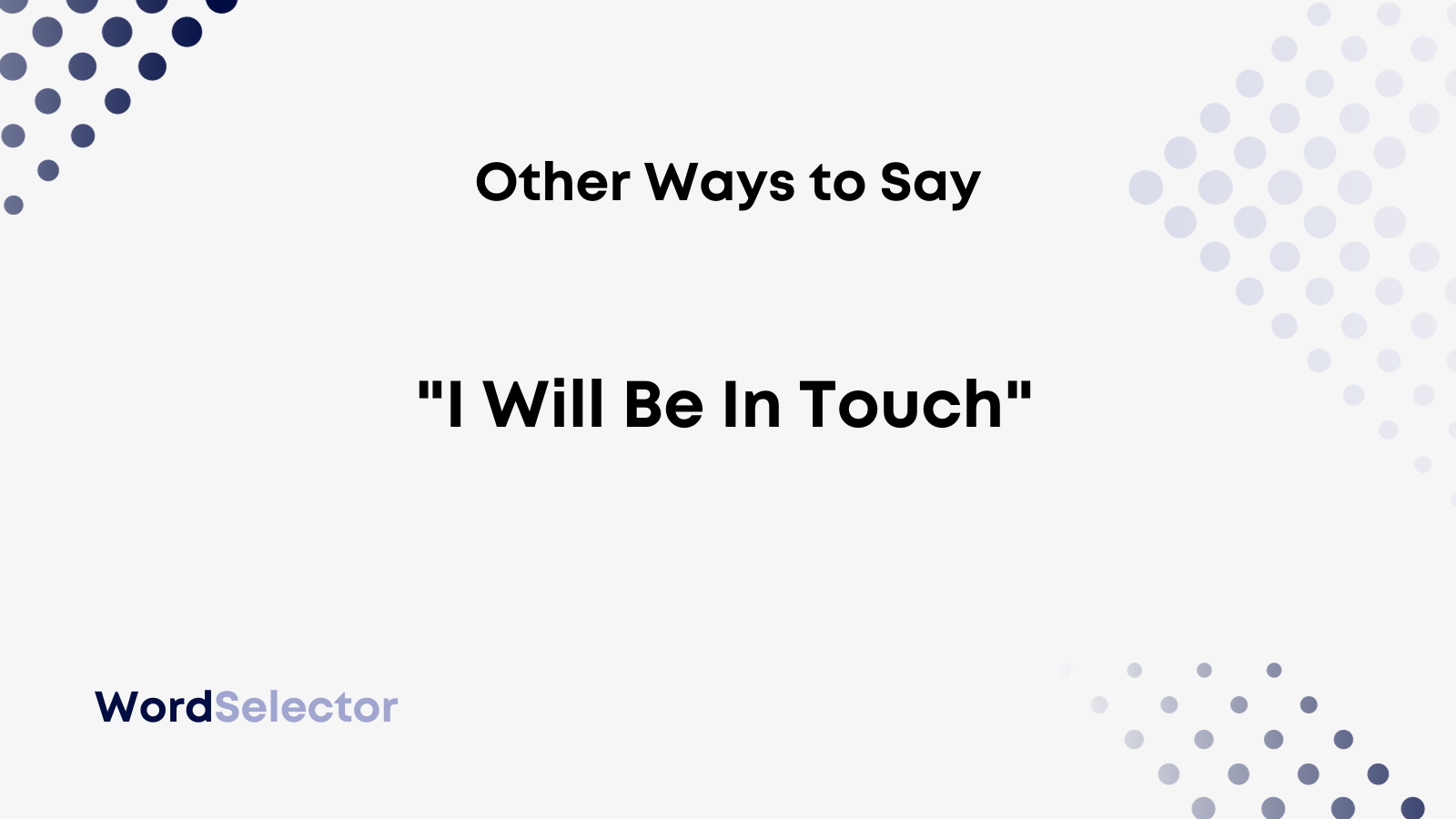So, you don’t have an answer for someone yet and want to say “I will be in touch.”
But you’re also worried that the phrase is a bit generic or repetitive.
Well, it’s time to explore your options and see what else is out there!
Luckily, this article has gathered the best phrases to show you how to say “I will be in touch” professionally.
Other Ways to Say “I Will Be In Touch”
- I’ll get back to you shortly
- Be sure to wait for my email
- I’ll keep in contact
- I will reach out again soon
- I’ll stay connected
- I’ll touch base again
- I will get back to you soon
- I’ll remain in touch
- Bear with me
- I’ll keep you in the loop
- I’ll be back in touch at some point
- When I know more, I’ll reach out
- Once I have more to say, I’ll be in contact
KEY TAKEAWAYS
- “I will be in touch” is a great phrase to use in formal settings to show you’ll reply when you have more information.
- Try “I’ll get back to you shortly” as a formal synonym that makes it clear you plan on emailing again soon.
- “Be sure to wait for my email” works well as a more informal alternative when you want to appear more friendly.
Keep reading to learn how to say “I will be in touch” professionally and politely. We’ve touched on the two best alternatives to show you what options you have.
You can also read the last section to learn if it’s correct to say “I will be in touch.” Then, you’ll know whether it’s suitable to include it in your emails.
I’ll Get Back to You Shortly (Formal)
We recommend using “I’ll get back to your shortly” as another way to say “I will be in touch.” It lets the recipient know you plan on replying again soon.
Try using it when emailing an applicant after an interview. It shows that you will update them on their application status, but you don’t know when it will be.
Generally, you can explain this by saying you have to go through other applicants first. Most applicants will understand that you’re trying to find the most suitable person for the role.
Here’s a great email sample to show you how to use it:
Dear Katie,
I’ll get back to you shortly once we’ve seen a few other applicants. Then, I’ll let you know what we think.
Kind regards,
Matt Stevenson
Be Sure to Wait for My Email (Informal)
Feel free to use “be sure to wait for my email” as a more informal alternative to “I will be in touch.”
It keeps things more friendly and less demanding. This is a good way to let someone know they need to pay attention to their inbox, as you don’t know when you’ll email them again.
Try using it when emailing an employee. It shows you might have something new to share with them, but you’ll let them know as and when something comes up.
This sample email should also help you understand it:
Dear Michelle,
Be sure to wait for my email. For now, I’d like you to keep working on this project, but I’ll have an update soon.
Yours,
George White
Is It Correct to Say “I Will Be In Touch”?
It is correct to say “I will be in touch.” Generally, it’s a great way to let someone know you’ll reach out to them when you have an update that’s relevant.
It means you’ll be in contact with more information soon. It’s a great way to let someone know you’ll email them back, but you don’t know when it will be.
For instance, a recruiter might say it after an interview. It shows that they have a few things to consider before giving you any final answers.
Check out this email sample to see how it works if you’re still unsure:
Dear Jeff,
I will be in touch once we’ve done the other interviews. Then, I’ll let you know what we think.
All the best,
Simon Cower
You might also come across the following alternative phrases:
- I will keep in touch.
- I will get in touch.
However, these do not mean the same thing.
“Keep in touch” suggests that someone will stay in contact with you. It does not imply they’ll email you with an update. Instead, it means they see you as a friend and will continue conversing.
“Get in touch” is a more informal option. It shows you will contact a company on behalf of someone. It does not mean you’ll reach out when you have more information.
You can also use this variation to sound more professional:
- We will be in touch.
Using “we” helps you to represent a company.
Finally, we recommend reviewing these extensions to see which you like best:
- I will be in touch with you soon
- I will be in touch soon
- I will be in touch shortly
- I will be in touch in due course

